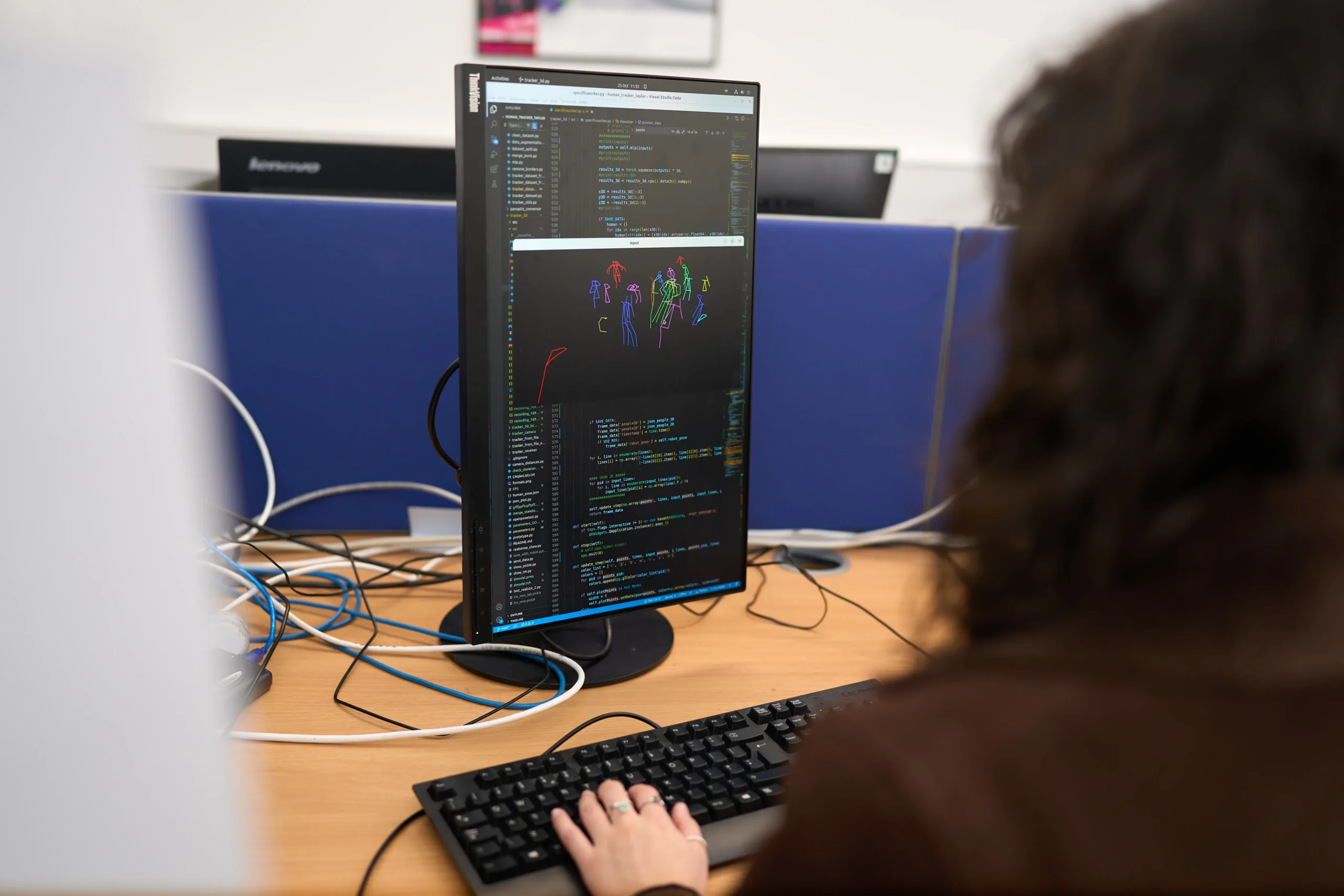AI plays two roles in cybersecurity: it strengthens defences and introduces new risks. If you're working in digital environments, managing IT systems, or considering a future in cybersecurity, you'll need to understand how AI shapes attacks and protections. As generative AI tools become more advanced and accessible, cybercriminals are using them to launch faster, more sophisticated, and harder-to-detect attacks. At the same time, defenders are integrating AI into their security frameworks to stay one step ahead.

A fast-paced climate full of changes presents new opportunities and serious challenges for professionals working in cybersecurity. A strong foundation that prepares you for these adaptations matters. Let's unpack AI in cybersecurity and how our Bachelor and Master of Science in Cybersecurity will stand you in good stead for roles in this area.
How AI is changing cybersecurity
AI is disrupting traditional cybersecurity practices in two key ways: by increasing the scale and complexity of threats and by offering new tools for defence.
On the offensive side, AI is being used to:
- Write realistic phishing emails and generate deepfake content.
- Conduct automated vulnerability scanning at scale.
- Deploy adaptive malware that can learn from its environment.
This allows for faster, more targeted attacks and makes it easier for threat actors to evade traditional detection methods.
On the defensive side, cybersecurity teams are using AI to:
- Monitor network traffic for anomalies in real time.
- Detect and respond to threats faster through automation.
- Analyse large datasets to identify emerging attack patterns.
In this context, the question isn't about AI changing cybersecurity but how fast professionals can adapt to these changes.
Generative AI and the future of cyber threats
Generative AI tools like large language models (LLMs) are making it easier to create credible phishing campaigns, clone voice recordings, and replicate biometric data. Attackers don't need advanced coding skills or in-depth domain knowledge. With the right prompts, generative AI can generate malicious code, impersonate individuals, or even craft fake but convincing documentation to bypass security controls.
This democratisation of cybercrime is particularly concerning for sectors that rely on trust and identity verification, such as banking, healthcare, education, and government services. Generative AI has also opened the door to entirely new attack vectors, like AI model poisoning and prompt injection attacks, that require specialised training for identification and prevention.
How AI helps cybersecurity professionals fight back
In response to these threats, AI is playing an important role in modern cyber defence.
AI-powered cybersecurity tools can:
- Identify zero-day vulnerabilities before they're exploited.
- Automate incident response to reduce human error and delays.
- Improve identity and access management through behavioural analytics.
By processing massive volumes of data, AI systems can flag unusual behaviour across systems and devices far more efficiently than manual monitoring ever could. For example, machine learning models can detect subtle patterns of insider threats or predict attacks based on historical data.
These capabilities are also improving cyber safety by helping organisations move from reactive to proactive security measures.
What is cybersecurity risk, and how can it be prevented?
Cybersecurity risk refers to the potential for loss, damage, or disruption resulting from a cyberattack or system failure. This includes financial loss, reputational harm, regulatory penalties, and data breaches.
AI can help mitigate cybersecurity risk by enhancing the precision and speed of:
- Threat detection
- Risk assessment
- Access control
- Automated patch management
The tools used are only as good as the people who implement and manage them. Preventing cybersecurity attacks requires a combination of skilled professionals, well-defined protocols, and advanced technologies.
How big tech is shaping the future of cybersecurity
Major tech companies like Google, Microsoft, and Amazon are investing heavily in AI-driven cybersecurity solutions. Microsoft's Security Copilot, powered by OpenAI, uses generative AI to support analysts in real-time, offering threat summaries, guided investigations, and recommended fixes.
Google's Chronicle uses AI to analyse petabytes of security telemetry, making threat detection more scalable. Meanwhile, Amazon's GuardDuty continuously monitors for malicious activity using machine learning models.
These advancements are setting the pace for the industry. But they also increase the need for professionals who understand both the technologies and the ethical, legal, and strategic implications behind them.
Why advanced study matters in the age of AI
As the role of AI in cybersecurity increases, so does the demand for skilled professionals. If you're starting or looking to specialise, our degrees offer the foundation to build technical expertise and strategic insight.
Aston University Online offers two cybersecurity programmes designed to support this growth:
Bachelor of Science in Cybersecurity (BSc) Online
- Ideal for those beginning their career in cybersecurity, this undergraduate programme covers core areas like network security, data protection, and digital forensics. You'll also explore how AI and machine learning are used in threat detection and defence systems.
Master of Science in Cybersecurity (MSc) Online
- Designed for professionals ready to lead in the field, this postgraduate degree covers advanced topics such as AI in cyber defence and offence, cyber risk governance, and incident response. You'll graduate with the skills to manage complex cyber systems and respond to high-level threats across sectors.
Both programmes are delivered online, allowing you to study flexibly while gaining industry-relevant skills grounded in real-world applications.
Stay ahead
The professionals pioneering the future of cybersecurity are those who understand how to work with and against AI technologies. If you're ready to develop your capabilities in this high-demand field, we can provide you with the knowledge, skills, and confidence to make a real impact. Find out more here.


